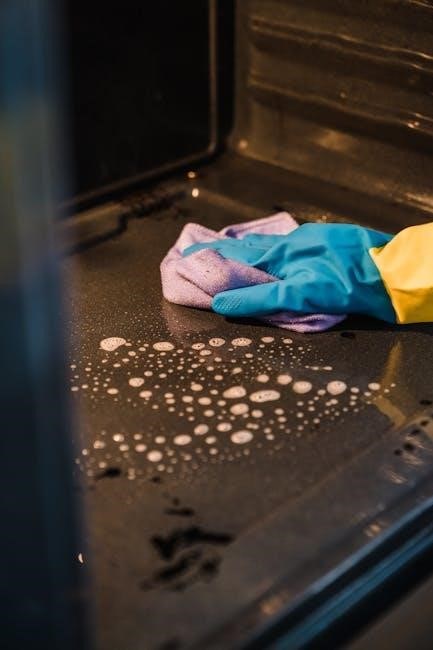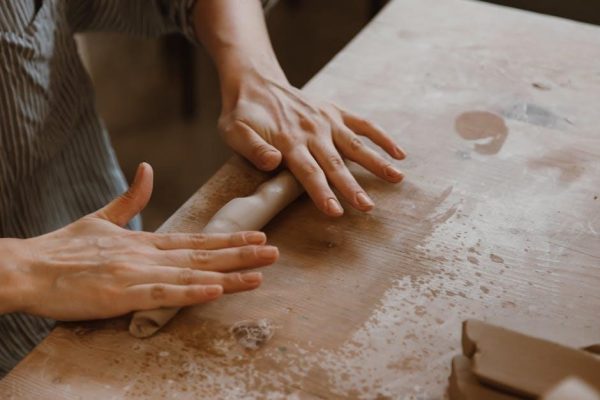Puberty is a natural, essential phase of development, marking the transition from childhood to adulthood. It involves significant physical and hormonal changes, typically beginning between ages 9 and 14 for boys, leading to sexual maturity and emotional growth.
What is Puberty?
Puberty is a biological process marking the transition from childhood to adulthood, characterized by physical and hormonal changes. It typically begins for boys between ages 9 and 14, triggered by hormone surges like testosterone. During this phase, the body matures sexually, leading to changes such as increased height, voice deepening, and the growth of body hair. Puberty is a natural process that equips the body for reproduction and adult physical characteristics. Understanding its stages and effects is crucial for navigating this transformative period smoothly.
Why is Puberty Important?
Puberty is crucial as it signals the transition to adulthood, enabling sexual maturity and reproductive capability. It fosters physical growth, such as increased height and muscle mass, and emotional development, preparing individuals for adult responsibilities. This phase is vital for developing secondary sexual characteristics and overall physical and mental readiness for adulthood. Understanding puberty’s significance helps individuals appreciate the biological and psychological changes they undergo, ensuring a smoother transition into maturity.

Physical Changes During Puberty
During puberty, boys experience significant physical changes, including rapid growth spurts, genital development, increased body hair, voice deepening, and muscle mass growth, shaping their adult physique.

Growth Spurt and Height Increase
During puberty, boys experience a significant growth spurt, with approximately 20% of adult height gained. This rapid increase in height typically begins around ages 11-13. The growth spurt in boys often starts later than in girls, but the final height achieved is usually greater. Hormones, particularly testosterone, drive this growth. The legs and arms grow first, which may cause temporary disproportion in body proportions. This growth phase is crucial, as it sets the foundation for adult stature. It’s important to note that growth rates vary widely among individuals, and some boys may continue growing into their late teens, around 16-18 years old. Proper nutrition and healthcare support optimal growth during this period.

Genital Development and Changes
During puberty, boys experience significant genital development. The first sign is the enlargement of the testicles and scrotum, which becomes thinner and darker. This change is driven by increased testosterone production. Following this, the penis begins to grow in both length and thickness, typically starting around ages 11-13. The growth of the penis and testicles continues gradually, reaching adult size by the late teens. Additionally, the seminal vesicles and prostate mature, preparing the body for fertility. It’s important to note that these changes vary in timing and pace among individuals. Proper hygiene and understanding of these developments are essential for health and confidence during this transition.
Body Hair Growth
During puberty, boys begin to develop body hair as hormone levels increase. Pubic hair is usually the first to appear, starting light and fine before becoming darker and coarser. This hair initially grows around the base of the penis and gradually spreads over the pubic area. Following pubic hair, underarm hair and facial hair start to grow, often becoming thicker over time. Some boys may also notice hair on their chests, legs, and arms. The texture and rate of growth vary among individuals, with genetics playing a significant role. Proper personal grooming, such as shaving or trimming, becomes important for hygiene and personal preference. These changes are natural signs of maturation and should be embraced as part of the journey through puberty.
Voice Changes
Voice changes are a key part of puberty for boys, driven by the surge in testosterone. As the vocal cords grow thicker and longer, the voice deepens and becomes more masculine. This process can start gradually, with occasional voice cracks, before stabilizing into a lower pitch. The larynx, or Adam’s apple, also becomes more prominent, a visible sign of these changes. While the deepening of the voice is a natural and permanent transformation, it can take time for the voice to fully settle. Some boys may experience a wider range of vocal tones during this transition. These changes vary in timing and pace, but they are a normal and essential part of maturing into adulthood. Proper care of the voice, such as staying hydrated, is important to maintain vocal health during this period.
Muscle Mass and Body Shape
During puberty, boys experience a significant increase in muscle mass, driven by rising testosterone levels. This hormonal surge causes the body to develop broader shoulders and a more defined physique. The redistribution of body fat also plays a role, as boys typically lose fat while gaining lean muscle, leading to a more athletic and masculine body shape. Unlike girls, who may retain more body fat, boys often see a noticeable shift toward a stronger, more muscular frame. This transformation can vary widely among individuals, with some boys developing muscle more rapidly than others. Genetics and overall health also influence the extent of muscle growth and body shape changes during this period. These physical developments are a natural part of maturation, shaping the adult male form over time.

Hormonal Changes
Puberty triggers a surge in hormones like testosterone, initiating physical and sexual maturation. These changes are regulated by the hypothalamus and pituitary gland, driving growth and development.
Testosterone Surge and Its Effects
During puberty, testosterone levels rise significantly, triggering various physical changes. This hormone, produced by the testes, is responsible for the growth of the penis and testicles, as well as the development of facial and pubic hair. Testosterone also contributes to increased muscle mass and bone density, leading to a broader shoulder structure and a more defined jawline. Additionally, it plays a role in deepening the voice and stimulating the onset of sperm production. These changes are gradual, typically spanning several years, and are essential for reaching sexual maturity and developing masculine characteristics. The surge in testosterone also influences emotional and mental development, often leading to increased confidence and assertiveness.
Role of the Pituitary Gland
The pituitary gland plays a crucial role in initiating and regulating puberty. Located in the brain, it releases hormones that signal the testicles to produce testosterone. These hormones, known as gonadotropins (LH and FSH), stimulate the testes to mature and begin producing testosterone. The pituitary gland acts as a control center, responding to signals from the hypothalamus to ensure the timing and progression of puberty are appropriate. Without the pituitary gland’s coordination, the physical and hormonal changes of puberty would not occur in a synchronized manner. This gland essentially serves as the trigger and regulator, ensuring the body develops properly during this critical phase.

Emotional and Mental Changes
Puberty brings emotional fluctuations, including mood swings, confusion, and heightened sensitivity. Boys may experience excitement, anxiety, and questions about identity, requiring patience and understanding during this transition.
Mood Swings and Emotional Fluctuations
During puberty, boys often experience intense mood swings due to hormonal changes. One moment they may feel happy and confident, and the next, frustrated or tearful. This emotional volatility can be confusing and overwhelming.
Testosterone surges can amplify feelings, making boys more sensitive to stress or minor setbacks. Additionally, the pressure to conform to societal expectations or fit in with peers can heighten emotional instability.
It’s crucial for parents and caregivers to offer a supportive environment, allowing boys to express their feelings openly. Understanding that these fluctuations are temporary and part of normal development helps everyone navigate this challenging phase with patience and empathy.
Self-Esteem and Body Image
Puberty can significantly impact a boy’s self-esteem and body image. Rapid physical changes, such as growth spurts or acne, may lead to feelings of insecurity. Boys often compare themselves to others, which can heighten self-consciousness.
Societal expectations about masculinity and body ideals can add pressure, making some boys feel inadequate. However, fostering a positive body image is crucial. Encouraging boys to focus on their strengths and unique qualities helps build resilience.
Open conversations about these changes can reassure them that growth is natural and temporary. Promoting self-acceptance and healthy habits, like exercise and proper hygiene, supports emotional well-being during this transitional phase.

Hygiene and Self-Care
Daily showers, using deodorant, and wearing clean clothes help manage body odor. Regular facial care prevents acne, while hair and nail maintenance keeps you feeling fresh and confident.
Importance of Skin Care
During puberty, hormonal changes can lead to increased oil production, causing acne and breakouts. Proper skin care is essential to maintain healthy, clear skin. Washing your face twice daily with a gentle cleanser helps remove dirt and excess oil. Moisturizing keeps skin hydrated and balanced. Sunscreen is crucial to protect against UV damage. Avoiding harsh products and touching your face reduces the risk of clogged pores. Treating acne promptly with non-comedogenic products can prevent scarring. Regular exfoliation removes dead skin cells, promoting a smoother complexion. Neglecting skin care can lead to long-term issues like persistent acne or uneven skin tone. A consistent routine fosters healthy habits and boosts confidence during this transformative phase.
Personal Grooming and Hygiene Practices
During puberty, personal grooming and hygiene become crucial due to increased sweat and body odor. Showering daily with soap helps maintain freshness and prevents odor buildup. Using deodorant or antiperspirant can further combat body odor. Trimming fingernails and toenails regularly keeps hands and feet clean and neat. Haircare is also important; washing hair regularly prevents oiliness and dandruff. As facial hair grows, shaving or trimming helps maintain a clean appearance. Pubic hair may also need grooming for comfort and hygiene. Wearing clean clothes daily promotes confidence and freshness. Brushing teeth twice a day and using mouthwash ensures good breath and oral health. These practices help teens feel clean, confident, and prepared for daily life during puberty.




